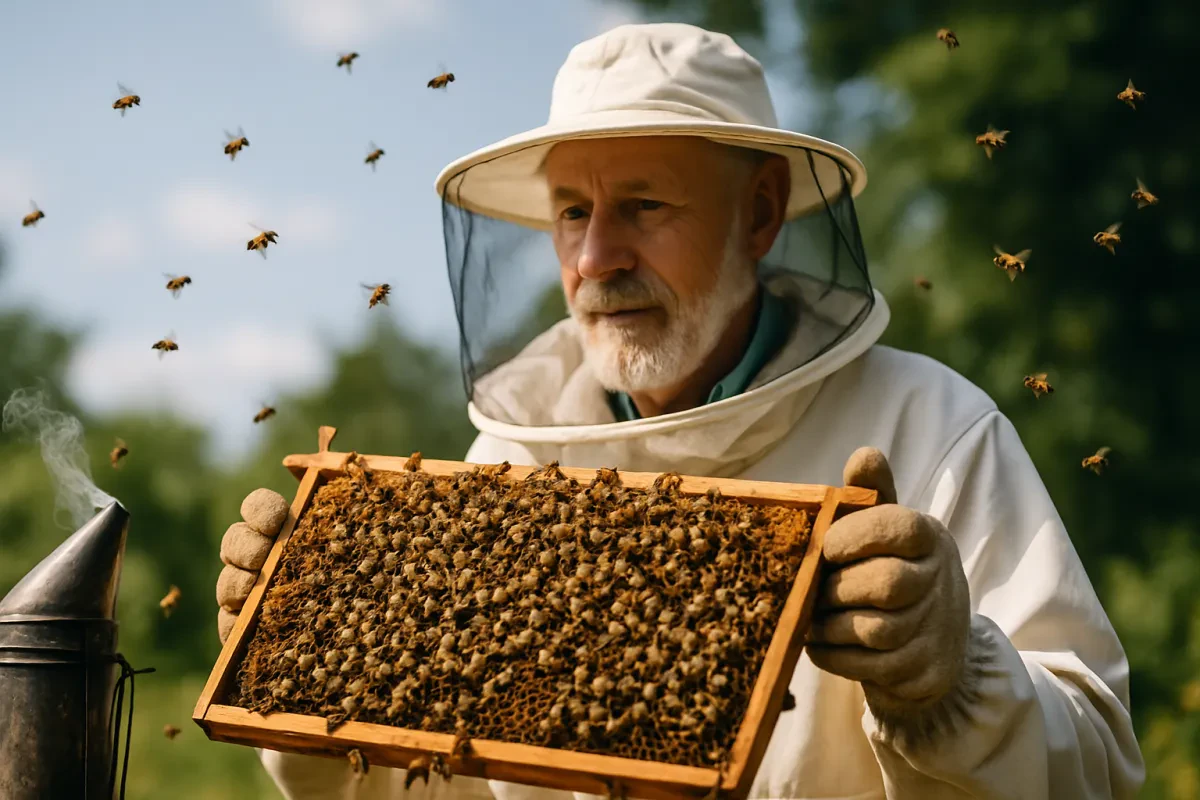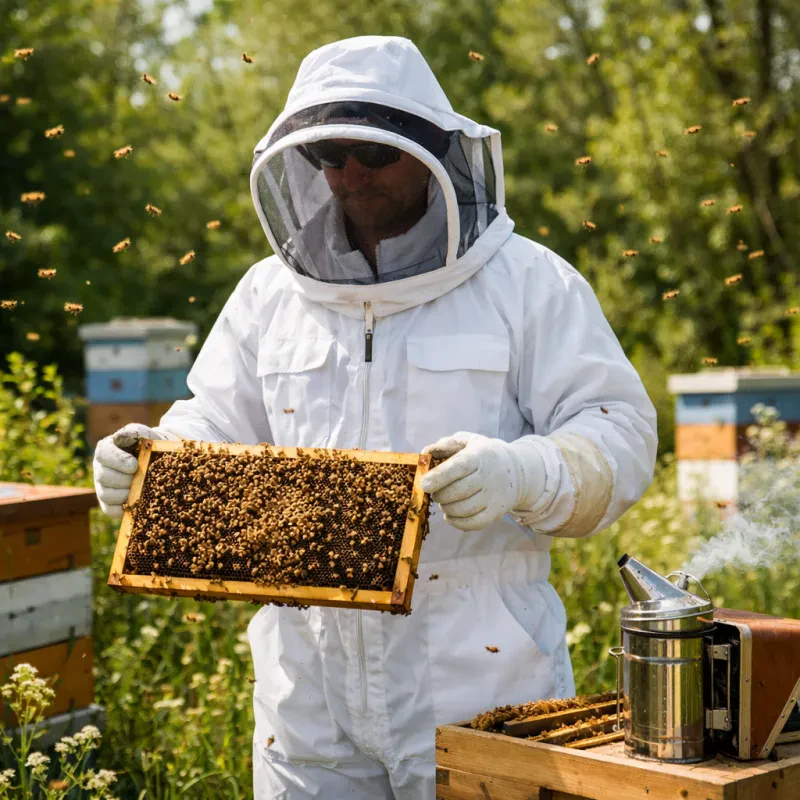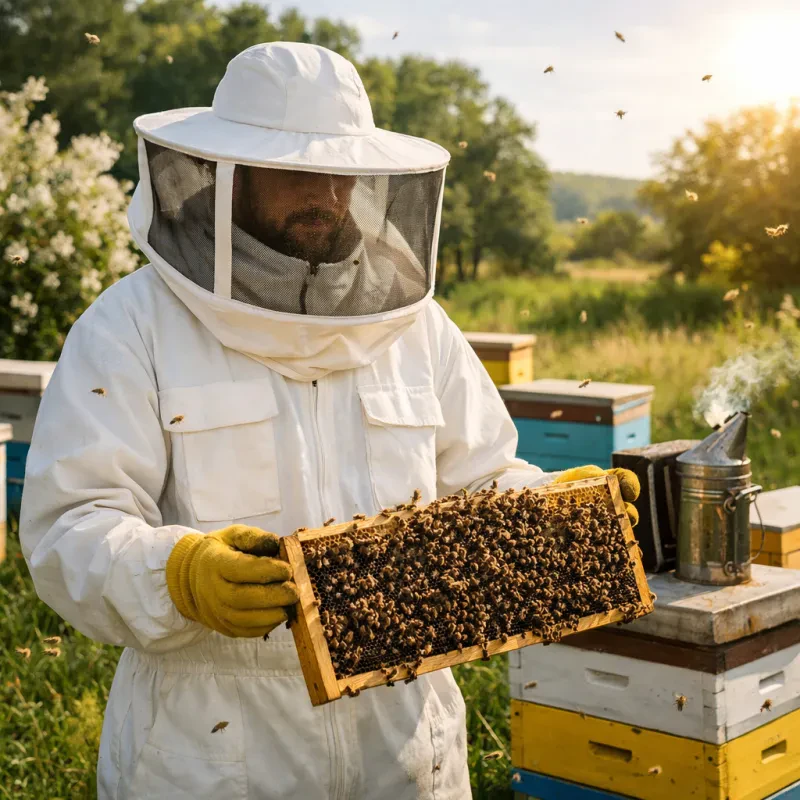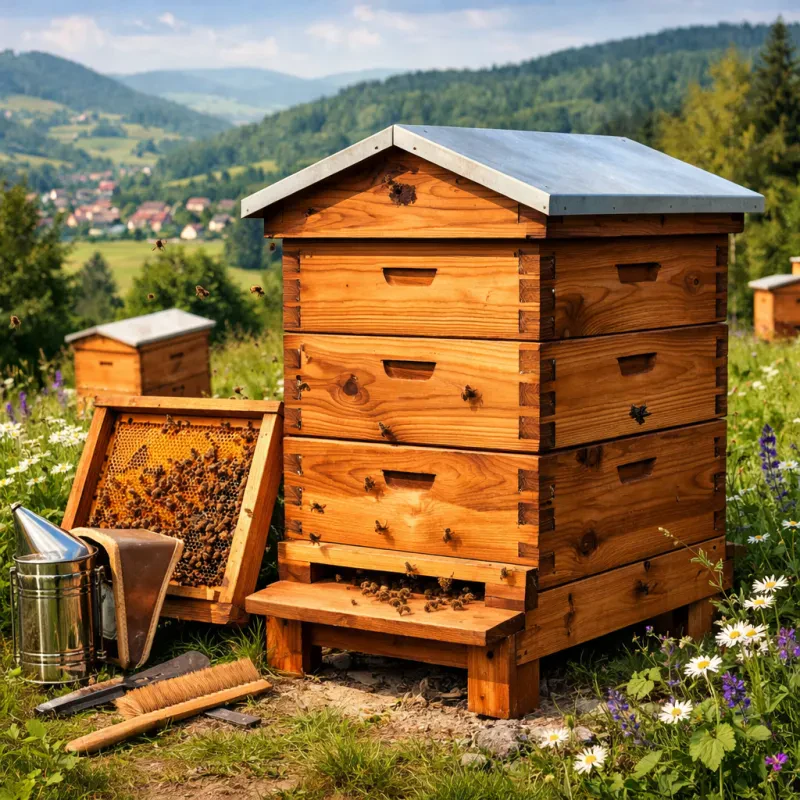Getting Started: Essential Tips for Beginner Beekeepers
Are you considering becoming a beekeeper but don't know where to start? Beekeeping can be a rewarding and fascinating hobby, but it requires knowledge, dedication, and careful management. Here are some essential tips to help you get started on your beekeeping journey:
1. Do Your Research
Before diving into beekeeping, it's crucial to educate yourself about bees and their behavior. Understand the different types of bees, their life cycle, and how they interact within the hive. Research common issues that beekeepers face, such as diseases and pests, and learn how to identify and manage them. Familiarize yourself with local regulations and any permits required for keeping bees in your area.
2. Join a Beekeeping Community
Connecting with experienced beekeepers in your community can provide valuable insights and support. Join a local beekeeping association or club, attend workshops and training sessions, and participate in mentorship programs. Engaging with seasoned beekeepers will give you practical knowledge and guidance specific to your region.
3. Get the Right Equipment
Investing in the proper beekeeping equipment is crucial for the wellbeing of your bees and your own safety. Essential equipment includes beehives, frames, a smoker, a bee suit, gloves, and tools for hive management. Ensure your equipment is of good quality and meets safety standards.
4. Choose the Right Location
Selecting the right location for your beehives is vital. Bees need access to abundant sources of nectar and pollen, so choose an area with a diverse range of flowering plants. Ensure there is a reliable source of water nearby. Place the hives in a sheltered spot with partial shade and protection from strong winds.
5. Start with a Nucleus Colony
If you're new to beekeeping, it's advisable to begin with a nucleus colony, also known as a "nuc." A nuc consists of a small established colony with a queen, workers, and brood. Starting with a nuc allows you to learn the ropes while the colony is already established, giving you a higher chance of success.
6. Practice Patience
Beekeeping requires patience and observation. Allow your bees time to settle into their new environment and resist the temptation to intervene too frequently. Regularly monitor the hive for signs of disease or overcrowding, but avoid excessive disruption. Remember, bees are highly efficient and capable of managing their own affairs.
7. Stay Calm and Protected
When working with bees, it's essential to remain calm and focused. Bees are sensitive to your emotions, so approach the hive with a relaxed demeanor. Wear protective gear, including a bee suit, gloves, and a veil, to reduce the risk of stings. Practice gentle movements around the hive to minimize disturbance.
8. Keep Learning
Beekeeping is a continuous learning process. Stay updated on the latest techniques and discoveries related to beekeeping. Attend workshops, read books and reputable websites, and keep in touch with fellow beekeepers to exchange knowledge and experiences. The more you learn, the more successful and rewarding your beekeeping journey will be.
Remember, beekeeping is not just about honey production but also about supporting these vital pollinators and their crucial role in our ecosystem. With the right knowledge, equipment, and a genuine passion for bees, you can embark on an exciting and fulfilling beekeeping adventure.
Best Practices and Proven Tricks for Successful Beekeeping
Beekeeping is an ancient practice that provides numerous benefits, such as pollination and the production of honey and beeswax. However, it's crucial to understand the best practices and proven tricks to ensure successful beekeeping. Below, we outline some key tips that every aspiring or experienced beekeeper should keep in mind:
1. Choose the Right Location for Your Beehive
The location of your beehive plays a vital role in the overall success of your beekeeping endeavor. Select a spot that offers ample sunlight, as bees thrive in warm conditions. Additionally, ensure that the hive is protected from strong winds to prevent damage.
2. Provide a Clean Water Source
Bees need a reliable water source near their hive. A shallow water dish or bird bath can serve as their water station. Ensure that the water is changed regularly to prevent the breeding of mosquitoes.
3. Use Protective Beekeeping Gear
Beekeepers must invest in protective gear, including a helmet with a veil, gloves, and a bee suit. This equipment keeps you safe from potential bee stings and provides a calmer environment for conducting necessary beekeeping activities.
4. Regularly Inspect the Hive
Frequent inspections of your beehive are essential for monitoring the health and progress of your colony. Look out for signs of disease, pests, or any other issues that may require immediate attention. This practice helps in catching potential problems early on, preventing them from escalating.
5. Maintain Proper Ventilation
Bees require good air circulation within their hive to prevent moisture build-up, which can lead to an array of problems. Ensure that your hive has adequate ventilation by using various techniques such as adding screened bottom boards or ventilation holes.
6. Practice Swarm Prevention Techniques
Swarming is a natural process in the life cycle of honeybees, but it can be detrimental to the overall productivity of your hive. Regularly inspect your hive and use various techniques, such as providing adequate space for expansion and monitoring queen cells, to prevent swarming.
7. Implement Integrated Pest Management
Pests, such as varroa mites, can significantly impact the health of your colony. Consider implementing integrated pest management techniques, like using sticky boards and essential oils, to control pests effectively. However, always prioritize natural and organic solutions to avoid harming your bees or honey quality.
8. Maintain Balance in Harvesting Honey
When it comes to harvesting honey, it's crucial to maintain a balance between the colony's needs and your desire for the sweet reward. Over-harvesting can lead to nutritional deficiencies for the bees, so ensure you leave enough honey for their sustenance throughout the year.
Beekeeping can be an immensely rewarding and fulfilling hobby or business. By following these best practices and proven tricks, you are setting yourself up for success in nurturing your bee colony, enjoying the benefits of honey production, and contributing to the wellbeing of our ecosystem.
Troubleshooting and Overcoming Challenges in Beekeeping: Expert Advice and Solutions
Beekeeping can be a rewarding and fascinating hobby, but like any other endeavor, it comes with its fair share of challenges. As a beekeeper, it is important to be prepared for common issues that may arise and to know how to troubleshoot and overcome them. In this section, we will provide expert advice and solutions to help you tackle any challenges you may face in your beekeeping journey.
1. Dealing with a Weak or Dying Colony
One of the most distressing challenges a beekeeper may encounter is a weak or dying colony. There can be several reasons for this, including disease, predator attacks, or lack of adequate food sources. To address this issue, first, conduct a thorough inspection of the hive to determine the cause. If you suspect disease, contact a local beekeeping association or expert for guidance on diagnosis and treatment. In cases of food scarcity, consider feeding the bees with a sugar syrup solution or providing pollen substitutes.
2. Controlling Varroa Mites
Varroa mites are tiny parasites that can significantly harm bee colonies if left unchecked. Regular monitoring and control of these mites are essential for colony health. Treatments such as organic acids, essential oils, or miticides can be effective in managing varroa mites. However, it is crucial to follow instructions carefully and consider the impact on bees and the environment. Seek advice from experienced beekeepers or local experts to determine the best control methods for your particular situation.
3. Preventing Swarming
Swarming is a natural reproductive process for honeybees, but it can also lead to the loss of valuable worker bees. To prevent swarming, provide adequate space inside the hive by regularly adding extra supers or brood boxes. Conduct thorough and frequent inspections to detect queen cells, which are a telltale sign of swarming preparations. If you find queen cells, consider splitting the colony or performing an artificial swarm to redirect their natural instinct.
4. Addressing Absconding Behavior
Absconding is when an entire bee colony leaves the hive and relocates elsewhere. This can occur due to factors such as poor hive conditions, lack of food sources, or pest infestations. To address absconding, ensure that your hive is clean, well-maintained, and provides the necessary resources for the bees. Regularly check for signs of pests and diseases and take appropriate action if identified. If absconding persists, consider requeening the colony with a different queen who may be better suited to the specific environmental conditions.
5. Managing Honey Production
While beekeepers often aim to harvest honey, it is important to strike a balance to ensure the colony's sustainability. Always leave enough honey for the bees to survive the winter, as excessive harvesting can weaken the colony. Monitor the hive's honey stores regularly, especially before and after winter, and supplement with sugar syrup if needed. It is also essential to provide adequate forage and nectar sources throughout the seasons to support both the bees' needs and honey production.
Beekeeping is a constant learning process, and each challenge brings an opportunity to gain valuable knowledge and experience. By having a proactive approach, seeking guidance from experts, and adapting your practices as needed, you can troubleshoot and overcome the challenges that come with beekeeping. Remember, the health and well-being of your bees should always be the top priority.



